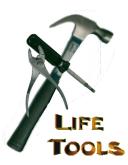

Relaxation is a state of being that we all desire and require. Some are more able than others to attain it; some are more able than others to enjoy it; yet our referent using that single word is not necessarily the same experience (linguists would call this "polysemy," or "multiple meanings"). People have individual and characteristic ways to respond to stress. Different relaxation methods may be appropriate for each of these diverse patterns of response (i.e., personal response stereotypies).
Many respond to stress with familiar pains that result from particular somatic muscle tensions. Others are autonomic nervous system responders (with various symptoms, e.g., heart palpitations, intestinal cramping, dry mouth, sweaty palms, excessive stomach motility, shortness of breath, et al.). Still others overwork their central nervous systems with ruminations and obsessions. Some people are prone to engage in self-destructive behavioral habits in an effort to relax (e.g., using drugs, performing dangerous compulsions, engaging in socially undesirable rituals).
Different techniques can be learned and used by those under stress to manage their unique brand of stress response. One may benefit from systematic practice of tensing and relaxing sequential groups of muscles (described as "Progressive Relaxation" by Edmond Jacobson early in the last century). Others gain from cultivating a passive attitude and gentle rhythmic breathing, described by Herbert Benson as the "Relaxation Response." Variants of this autonomic quieting can be fostered in traditional meditative and martial arts practices. Hypnotic suggestions (as encountered in "Autogenic Training" or in self-suggestion) also can address autonomic (sympathetic) hyperactivity. Biofeedback of autonomic signals is another path to this goal. Psychotherapy and meditative disciplines can calm central nervous system hyperactivity. Solution-oriented strategies and practices can replace self-defeating behavioral choices.
Though there are many self-help resources describing these sorts of approaches, there are benefits of having an experienced coach and guide: some unexpected side-effects can be unpleasant and disorienting for a minority of those who seek relief through these means, self-diagnosis is frought with hazards, if you mistakenly apply some instructions, you can practice a worthless regime and find yourself needlessly discouraged. Learning to relax is a wonderfully broad-spectrum aid that offers relief to many; informed practice is a sound investment of your time, with many happy returns.
